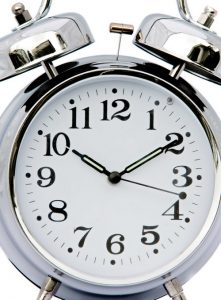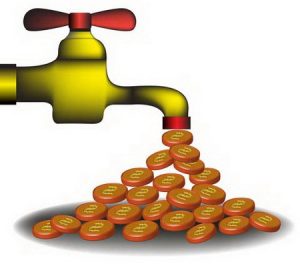by virtualworks | Dec 2, 2024 | business growth, Case Study, daily lfe, life work balance, Mastery, Outsourcing, Productivity, remote meetings, Remote Office Management, ROWE, Time Management, working from home, working remotely
 As the modern workplace continues to evolve, non-profit organizations increasingly recognize the Results-Only Work Environment (ROWE) as a powerful strategy for fostering flexibility, innovation, and employee satisfaction. While transitioning to ROWE offers numerous benefits, it also presents unique challenges that must be navigated with care. In this blog post, we will explore potential hurdles non-profits may face when implementing ROWE and discuss strategies to overcome them, empowering your organization to thrive in the face of change.
As the modern workplace continues to evolve, non-profit organizations increasingly recognize the Results-Only Work Environment (ROWE) as a powerful strategy for fostering flexibility, innovation, and employee satisfaction. While transitioning to ROWE offers numerous benefits, it also presents unique challenges that must be navigated with care. In this blog post, we will explore potential hurdles non-profits may face when implementing ROWE and discuss strategies to overcome them, empowering your organization to thrive in the face of change.
Adapting to a New Management Style
The shift to ROWE requires a significant change in mindset and practices for managers and employees alike. To ease the adaptation process:
- Offer Comprehensive Training: Equip your staff with the skills and knowledge needed to excel in a ROWE environment through workshops and training sessions. Focus on essential areas such as goal-setting, time management, and effective communication.
- Clearly Define Expectations: Establish and communicate performance expectations, work guidelines, and company policies to ensure everyone understands their roles and responsibilities within the new work model.
- Cultivate a Trust-Based Culture: Encourage transparency and open communication between team members and management to build trust and collaboration.
Addressing Communication and Collaboration Hurdles
With employees working different hours or across various time zones, communication and collaboration challenges may arise. To tackle these issues:
- Leverage Technology: Utilize collaboration platforms and communication tools that facilitate real-time connection and keep everyone in the loop, regardless of location or schedule.
- Implement Standardized Communication Protocols: Establish guidelines for communication, such as expected response times, preferred channels, and expectations for virtual meetings, to ensure efficient interaction among team members.
- Promote Regular Check-ins and Team Building: Schedule routine team meetings, one-on-one check-ins, and virtual social events to maintain a sense of camaraderie and address any challenges promptly.
Mitigating Risks Associated with Reduced Supervision
With ROWE’s focus on autonomy and trust, it’s crucial to identify and mitigate potential risks related to reduced supervision:
- Monitor Performance Regularly: Assess individual and team performance on a regular basis, providing constructive feedback, and ensuring that goals are being met.
- Encourage Accountability and Ownership: Motivate employees to take responsibility for their work, honor deadlines, and communicate any challenges or concerns they may encounter.
- Provide a Robust Support System: Offer resources, mentorship programs, and training opportunities to help employees grow and excel in their roles.
A Journey of Growth and Resilience
While implementing ROWE may present challenges for non-profits, it’s essential to view these obstacles as opportunities for growth and resilience. By understanding and addressing the issues head-on, organizations can create a thriving work culture that fosters innovation and success. Embrace the journey towards ROWE, and your non-profit will be well-positioned to navigate the ever-evolving world of work.
A Case Study: Non-Profit Success in a ROWE Environment
To illustrate the power of ROWE for non-profits, let’s consider the example of XYZ Organization, a non-profit focused on environmental conservation. By embracing ROWE, XYZ Organization experienced increased productivity, reduced turnover rates, and higher employee satisfaction levels.
XYZ Organization’s success can be attributed to their comprehensive training programs, effective communication protocols, and strong support systems. By implementing these strategies, they overcame challenges associated with ROWE and transformed their work culture, ultimately enhancing their impact and achieving their mission more effectively.
As the work landscape continues to evolve, embracing ROWE offers non-profits an opportunity to adapt and thrive. By addressing the challenges associated with this innovative management style and implementing strategies to overcome them, your organization can build a resilient and successful future.
by virtualworks | Aug 28, 2022 | Brand Image, Case Study, Customer relationships, daily lfe, Marketing, Mastery, Travelling
 “Before the pandemic, I was making arrangements for my summer holiday to the U.K. Among those many arrangements and bookings I had to make, two stood out in my mind – each of which are a great example of customer loyalty, how to build it and how to lose it quickly.
“Before the pandemic, I was making arrangements for my summer holiday to the U.K. Among those many arrangements and bookings I had to make, two stood out in my mind – each of which are a great example of customer loyalty, how to build it and how to lose it quickly.
The first experience was with a large, well known mail order firm in the U.S. I had purchased travel clothing for my trip and not everything fit well so I had to return a few things. The return slip was easy to complete and advise what I wanted done with the returned items.
Rather than me hunting all over the house for a copy of their catalogue, they included one with the order so it would be easy to find substitutions if I wanted. They included a pre-printed return label within its own folded card with instructions. These few easy to do steps made the return of the clothing really easy and hassle free to the extent that I just had to fill in the sender address on the label, tape up the box and drop off at my local post office. It was almost a joy to return the things I didn’t want. Will I purchase from them again? Absolutely!
The other experience was with a tour operator for an excursion of a now well-known castle in Britain. I had made the booking back in March and I was so happy that the date was available as it was going to be one of my last days in Britain – I really lucked out! I was so looking forward to it even though it was 6 months away.
In May, I received a notice by email that my booking was cancelled and asked what other date would I like to choose? I replied by saying it was the only date I was available for the tour and requested that my money be refunded. I waited a week and sent them a reminder. A couple of days after that, they requested my PayPal account address. A week later I checked my account and there was considerably less money in my account than the original amount I paid. There was no explanation by email for the difference. I researched their website to see if there was a cancellation policy, none to be found. I emailed again advising what I had paid and what I had received as a refund and requested they remit the difference immediately. Will I purchase from them again? Absolutely not! Will I recommend them? Not a chance.
In both these situations, the return process is handled by using a few simple steps to keep the customer (me) happy and coming back. One of them has it perfected; the other has a lot to learn!
Do you have any customer loyalty examples to share that we can all learn from? Please comment and feel free to social share below. Thanks!
by virtualworks | Jun 6, 2022 | Business, Case Study, Customer relationships, daily lfe, Leadership, Mastery, Outsourcing, Productivity, Time Management

I was in denial. My driveway needed re-sealing for quite a few years and I was really hoping the night fairies would come and do it for me. Alas, no. A couple of summers ago, I thought I’d do it myself: get the bucket of black goo and the roller from the DIY store and spend time in 35C heat rolling said black goo on my 2 cars wide and 2 cars long driveway. I never quite got around to it. I’m not a procrastinator but somehow I always managed to justify my lack of dedication to this part of home ownership.
About a month ago, a young man from 2 streets away knocked on my door and told me that he had a new business re-sealing driveways for the summer. He was studying accounting at university and thought this type of business venture would help him in school. (Great idea!)
I asked him how much to do the job and he said $195 tax in. I had to think about it – that’s quite a bit of money just to roll out a bucketful of black goo. I looked at my dismal driveway and thought woefully how long I had been putting off the task. I called him back to say that I would take him up on his offer. We scheduled the work for the following day.
My hero came over close to supper time the next day and while I was preparing the meal, I checked in on the progress by periodically going back and forth between the kitchen and the living room. The first thing I saw was him power spraying all the weeds out from between the driveway and the curb. I didn’t even think of that. The next trip to the living room I saw him power spraying the entire surface of the driveway. I would have swept the driveway; I didn’t even think of power spraying it. Then he taped off the entire perimeter of the driveway so that no black goo would get on the lawn. After that, he manually filled in all the cracks and holes (there were many). Only then did he roll out the black goo.
By the time he finished, that $195 was the best money I ever spent for value of work. Not only did he save me the labour of doing that type of work in the summer’s heat, he also provided value because he knew what he was doing. He’s done a lot of driveways and has a level of expertise that I will never have (nor wish to have). Sure, I could have done it, but outsourcing this task yielded much better quality results and freed up my time. Now I have this task off my to-do list.
There is value in everything we do, both personally and professionally; our expertise in what we do daily provides value to others. What do you need help with in your daily life? In my view, it’s worthwhile seeking out resources to help you get things done, things that you don’t know how to do, or have no wish to learn how to do, and free up your time on what matters most to you. Agree? Disagree?
by virtualworks | May 9, 2022 | Business, Case Study, Marketing, Mastery, Outsourcing, Value Based Fees

Did you hear the one about the customer and the plumber? This is a classic anecdote that applies to more and more industries and professions as we realize that providing services is not about trading time for money.
Customer: “Hello, I have a problem with my bathroom plumbing and I need you to come over.”
Plumber: “What seems to be the problem?”
Customer: “Well, when I flush the toilet, the kitchen faucet drips.”
Plumber: “I’ll be over this afternoon to have a look.”
The plumber arrives, inspects the plumbing in the house, checks out a few things, flips a few switches, tests the system and fixed the problem in about 15 minutes. He presents the customer with the bill.
Customer: “$600 to do 15 minutes work?!?!”
Plumber: “It took me 10 years to learn how to do that.”
There’s more to services than just trading time for money. What about all the years it took to get your education, training and credentials? What about your life experience? The time and effort it took you to build your organization? You’re worth so much more than dollars per hour. Think about it and share your comments.
 As the modern workplace continues to evolve, non-profit organizations increasingly recognize the Results-Only Work Environment (ROWE) as a powerful strategy for fostering flexibility, innovation, and employee satisfaction. While transitioning to ROWE offers numerous benefits, it also presents unique challenges that must be navigated with care. In this blog post, we will explore potential hurdles non-profits may face when implementing ROWE and discuss strategies to overcome them, empowering your organization to thrive in the face of change.
As the modern workplace continues to evolve, non-profit organizations increasingly recognize the Results-Only Work Environment (ROWE) as a powerful strategy for fostering flexibility, innovation, and employee satisfaction. While transitioning to ROWE offers numerous benefits, it also presents unique challenges that must be navigated with care. In this blog post, we will explore potential hurdles non-profits may face when implementing ROWE and discuss strategies to overcome them, empowering your organization to thrive in the face of change.



Recent Comments